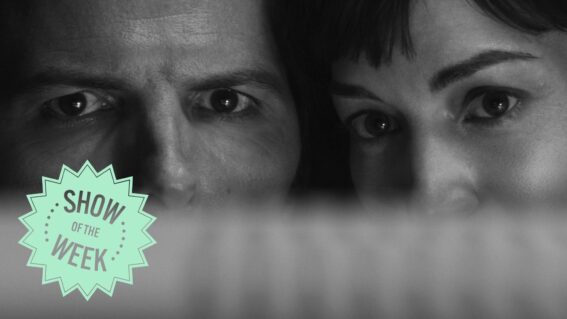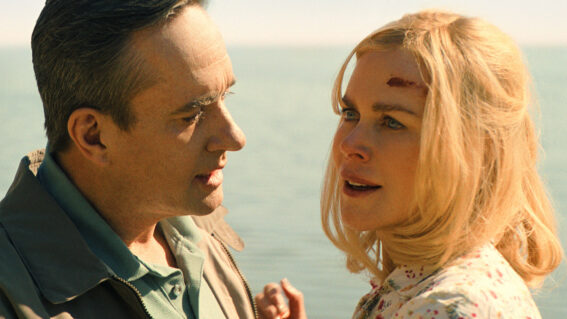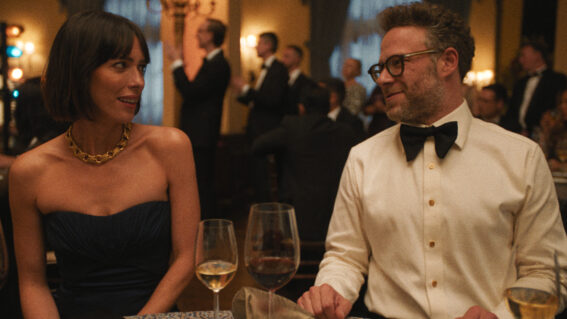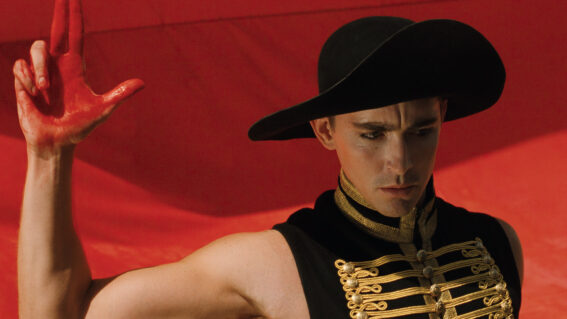Interview: ‘Pussy Riot: A Punk Prayer’ director Mike Lerner

Hi Mike. What have you been up to today?
MIKE LERNER: Well actually I just came from the screening from another film we’ve got on release, it’s called Smash & Grab: The Story of the Pink Panthers about the world’s most successful diamond thieves. We just had a screening in London of that and I’ve dashed home to talk to you.
Oh, thanks! When did you finish up on Pussy Riot: A Punk Prayer?
Well, we delivered a cut to Sundance back in January, then we did actually return to a cutting room after that for a month. In terms of cutting it, the film was done and dusted back in March, and we’ve been lucky enough to show the film in various places around the world since.
Clearly the Pussy Riot story is far from over, but I suppose with their trial and conviction the film has a natural end point.
Well absolutely, that’s very often the case with these big stories and as you say, we always wanted to make a film about the trial itself and it did obviously come to its logical end with the final verdicts. As you say, the story keeps on going, not a day passes without some form of update. Indeed even today I noticed one of the leaders of FEMEN in Ukraine has appealed for political asylum as a consequence of her protest before Pussy Riot. And again today there was more news about lodging an appeal at the high court in Russia, which could be another possible route to these women’s freedom. But yeah, it really is ongoing and it won’t end with their release, Pussy Riot isn’t about to retire and I think their imprisonment is a temporary hiatus in their ambitions.

All the way through the process of making the film we were thinking “well this trial can’t go on, they’re going to abandon this surely” and “surely these convictions can’t be upheld”. So far, the authorities have continued with this extraordinary suppression of this legitimate and long overdue protest but you never know, the whole thing has been such a surprise that there may well be a surprise that they let them out early. What I think is going to be a very interesting moment is late next February when you have the Winter Olympics in Russia. That’s a week before the intended release of these two women, and that’s going to be an explosive moment I would have thought, they may well decide to kind of mitigate that circumstance by an early release possibly. It certainly won’t be on any grounds of any form of justice should they be released early, surely.
It’s not unusual to see abuses of power by individuals or groups in documentaries, but in this case it looks like the whole state.
In a funny way I think everything is part of a system really. I think out of everybody involved in the legal system and justice so-called system in Russia, nobody really wanted these women to go to prison. Everybody said “well, we’re just doing our jobs and we’re going through the motions”. In a way everybody is part of a system – even Putin. Obviously a lot of people said he could’ve stopped this trial at any moment, but he’s not really driving it, if anybody is driving it, it’s the Orthodox Church but even they’re not in control of the legal system.
It’s kind of a very much Kafka-esque situation where everybody is doing sort of what they’re expected to be doing but nobody really wants this to happen. Because I think most people, probably unconsciously, realise what a surreal, bizarre and complete corrupt event this is – but somehow it’s nobody’s fault and everybody is just doing their job which is obviously a common story in a lot of perpetuation of injustice of this sort. I think it’s a combination of ineptitude and definitely a lot of completely, inept legal thinking in terms of how the world sees this trial. Nobody had much faith in the Russian legal system to begin with and certainly, they wouldn’t now.
What was it like being in Russia during such an unpredictable period?
It was a very interesting time of course. It wasn’t a Russian Spring, but it was certainly a moment when the opposition found a voice. There were massive demonstrations on the streets of Moscow and St. Petersburg, as big a demonstration as had been seen since the Russian Revolution itself. You know, at the time it felt like a very heady and exciting moment, that the state was being pushed to this extent. Of course the whole Pussy Riot trial is a demonstration of the level of inadequacy and insecurity that the state feels about its level of support and comfort in power.
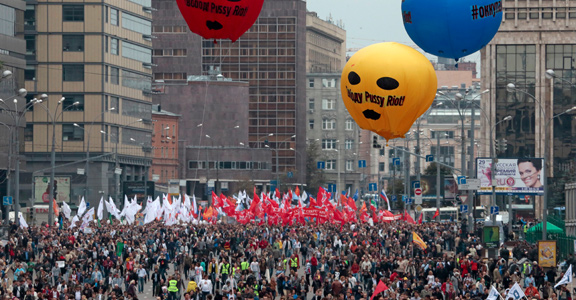
It does speak volumes. That was an exciting time. Clearly the state were successful at suppressing that moment, and driving people, perhaps off the streets and into a degree of introspection which we are seeing now, in terms of any opposition. As we see all over the world, you can suppress opposition but you can’t destroy it and it will re-group and reform and take new shape and indeed I’m sure Pussy Riot will emerge in a totally new and different form when that moment is right. People haven’t lost their minds, and they certainly have lost their anger and sense of injustice and so I’m sure it will re-emerge in some way.
Do you think that the Russian government’s reaction – panicked and petulant – is revealing in the same way as what we’ve seen in the West in recent weeks with the revelations of massive global spying?
Well without a doubt, one thing we don’t want people to see this film as is a specific attack on Russian autocracy. The attack and suppression of freedom of expression, freedom to protest, freedom of information, right to privacy, all these things are clearly major issues in every society and one should, I hope, see Pussy Riot as a kind of wake up call to all of us to question this situation which is pretty grim. Look what happened to the Occupy movement in America and Britain. Look what happened to Bradley Manning, Edward Snowden and all these people who clearly have provoked a degree of embarrassment and exposed a degree of unsanctioned control.
I mean, nobody voted for any of this stuff, so if we’re are talking about democracy then none of us voted for any of that stuff in our own society, so we shouldn’t see Russia as particularly pernicious. It comes in a colourful, surreal or embarrassing kind of mode. But that doesn’t make it any worse than what is happening in most societies. I’m sure Pussy Riot would see their opposition and their campaign as a global one, I mean obviously they have their issues with Putin’s third term but they have their issues with gender equality concepts and other issues globally. I think it’s a great thing and indeed why they have become a international symbol. I think a lot of people, especially young people but not exclusively, identify strongly with their sense of anger and outrage with this diminishing of freedoms we’ve experienced in the last 10-15 years.
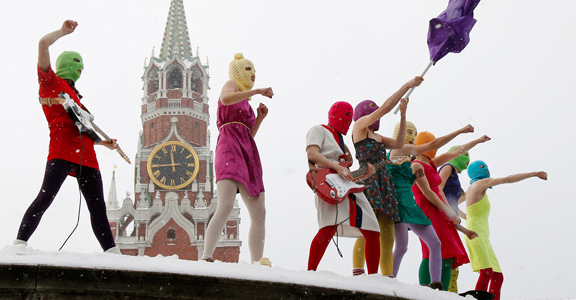
How did Pussy Riot first get your attention?
Well it was back in January last year, with the images of their Red Square action, which to me are incredibly iconic. I’m sure to many other too, these images of Pussy Riot protesting in front of the Kremlin. These pictures began appearing in the British press and you immediately think “who the hell are these people and what do they want” and then they get arrested. Obviously their cathedral action was clearly an action too far for the state and for society at large. And obviously as film-makers it seemed to be the perfect storm of politics and art which we couldn’t resist obviously.
A Punk Prayer is reliant on footage and cooperation from various sources. Was this difficult to accomplish?
Pussy Riot were very keen for their story to be told on an international stage, of course, and indeed they were very co-operative and helpful from the very beginning. But then at the same time the Russian state felt they didn’t have anything to hide. We had journalistic accreditation so we had access to the court and all that sort of stuff. But at no stage were they really trying to hide what they were doing. In fact they filmed and streamed the whole trial online which was, to us, a gift because a lot of the best material in the film was ultimately sanctioned by the Kremlin. We have them to thank for not only doing it, but doing it so well. They really put their best technicians on the job.
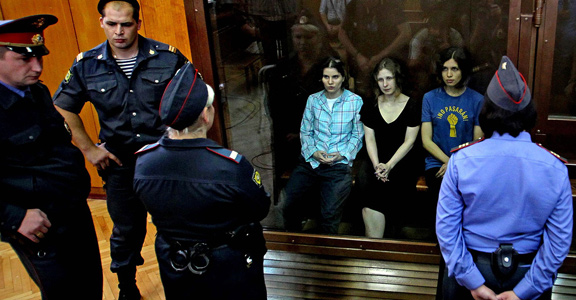
There’s a strong public broadcasting ethos there, I imagine.
Absolutely! Certainly very skilful if not ideologically restrained… As I say, neither side felt they had anything to hide, in a funny kind of way. Of course Pussy Riot don’t have anything to hide, they’re all about communicating and being open in contact with the world, they want to communicate with it. But then, ironically, so did the Russian state. So at no stage did we have any real problems at all, in fact they were incredibly helpful for the most part.
There’s no guilt or shamefulness on display from the prosecutors. They seem relaxed and convinced about the course of action they’re taking.
Yeah, exactly. And indeed today, I don’t know what the polling figures are, but I still feel the vast majority of people in Russia think Pussy Riot got what they deserved. Interestingly, especially at the very beginning of the story, the liberal people in Russia also thought that Pussy Riot had offended the religious community who didn’t need offending. They spent the last 70 years being abused by the state, so why were these young women choosing to attack them? It’s funny, you meet people whom you would assume would side with Pussy Riot but actually don’t and believe what they did was deserving of this criminal punishment.
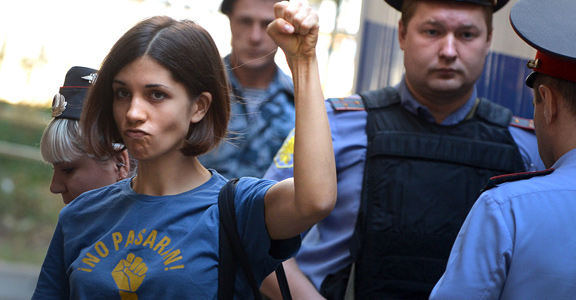
Pussy Riot challenge all sorts of orthodoxies though, I don’t imagine traditional liberal intelligentsia are immune.
I guess so, but it seems what they were doing was not attacking religion. They were making political and philosophical points about the relationship between church and state, the role of women in the church, the church’s attitude towards gender equality and gay rights and all these things. They’re young and perhaps they will learn from that I guess. It was interpreted as a blasphemy and a negative attack on religion. They would claim they’re pro-religion, they respect religion and believers and what they’re trying to point out is the need for tolerance and progress of some sort towards gender equality within religion.
We are having exactly the same debate right this moment in Britain with the ordination of female bishops in this country. It’s quite extraordinary to hear the level of debate – which is clearly only about gender equality – cast in all kinds of complex and doctrinal language to try evade that fact that it’s simply wrong that a women should be discriminated against in their role in an Anglican church or any church of course. So interestingly, the actual issues of Pussy Riot, they’re wanting everyone to think about and they’re universal issues of course. I think sadly the issues of the feminist agenda are far from being fulfilled. Indeed in many ways we have seen a decline in many aspects of gender equality in the world, in Britain and I’m sure in New Zealand and indeed everywhere. They’re right to demand action, and I’m sure they will continue to do so I’m sure.
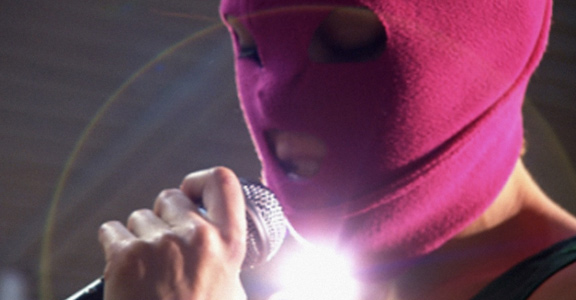
Just before we wrap up, what’s the last great film you’ve seen?
Well, uh, there are many! There is a film called After Tiller which is about the surviving late-term abortionists in America, and the philosophical and moral issues that they face. It’s a wonderful film which leaves you admiring these people who take on this incredible responsibility. There’s Herman’s House, a film about the longest serving solitary confined prisoner in America and his attempts to achieve psychological freedom through the design of his own house in his own mind which is amazing. Do you want another one? Call Me Kuchu, it’s a wonderful film, well, it’s an incredible film about the murder of gay rights activists in Uganda. I’ll finish off by saying that the documentary form is in incredibly good shape and probably in a better place than any other kind of film to tackle these important and painfully resonant issues around the world. Pussy Riot: A Punk Prayer, I hope, is part of that current, strong and, I would say important, trend.

